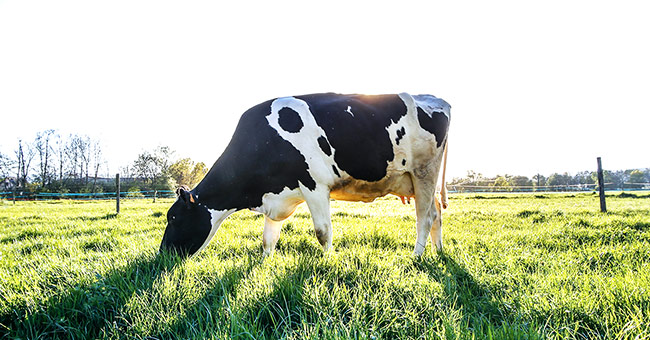U.S. dairy processors earned a major victory this week after a three-member panel ruled in their favor in a dispute with Canadian regulators over access to the country’s national market.
The decision, published yesterday, affirmed that Canadian authorities had violated the United States-Mexico-Canada Agreement (USMCA), signed in 2020, by directing U.S. dairy products to processors in Canada, rather than distributors or retailers. The case was filed in December 2020 and, after initial discussions between the two nations proved unsuccessful, assigned to the panel through the USMCA’s formal dispute resolution process.
The controversy centers around Canada’s implementation of a tariff rate quota system, which U.S. dairy processors complained made their imports uncompetitive. Spread across 14 dairy categories, the tariff-rate quotas are structured to start low and then increase once a certain threshold has been reached, and with as much as 90% of those quotas reserved for imports to Canadian processors to either pasteurize or turn into finished products, distributors are often stuck paying higher fees to bring in U.S. dairy goods.
According to an April 2019 report by the International Trade Commission, the USMCA as written is estimated to create an additional $226.8 million (0.1 percent) gain in total U.S. dairy product output, including a $227 million increase in exports to Canada over the baseline, largely driven by cheese and other milk and cream products.
“The Panel finds that Canada’s acknowledged practice of reserving access to 85 to 100% of 14 separate dairy TRQs exclusively to processors (including further processors), is inconsistent with Article 3.A.2.11(b) for it fails to ‘ensure that,’ ‘unless otherwise agreed by the Parties,’ Canada ‘does not . . . limit access to an allocation to processors,’” the panel wrote. “No one other than processors has access to, or can apply for, these allocations. Hence access is limited to processors, which is not permitted by the Treaty.”
The decision was lauded by United States Trade Representative, Ambassador Katherine Tai, as well as other U.S. lawmakers.
“Enforcing our trade agreements and making sure they benefit American workers and farmers is a top priority for the Biden-Harris Administration,” said Ambassador Tai in a statement. “That is why this Administration filed the first-ever panel request under the USMCA. This historic win will help eliminate unjustified trade restrictions on American dairy products, and will ensure that the U.S. dairy industry and its workers get the full benefit of the USMCA to market and sell U.S. products to Canadian consumers.”
“The United States’ win today against Canadian trade barriers for U.S. dairy products proves that trade done right can deliver real results for our farmers and workers,” said Senate Finance Committee Chairman Ron Wyden, (D-Ore.). “Despite agreeing to open its market to a host of American dairy products in the USMCA, Canada denied our farmers these benefits. USTR’s monitoring of USMCA implementation identified this failure and held Canada to its promise. Democrats insisted on strong enforcement in this deal, so I am particularly pleased USTR was able to take effective action to ensure that our farmers received what we bargained for in USMCA.”
Dairy industry groups including the U.S. Dairy Export Council (USDEC) and the National Milk Producers Federation (NMPF) had supported the government’s case, and lauded the panel’s ruling yesterday.
“Today’s decision is an important victory for U.S. dairy farmers and the millions of Americans whose jobs are tied to the U.S. dairy industry,” said Jim Mulhern, president and CEO of NMPF in a statement. “America’s dairy farmers appreciate the Biden Administration’s dedication to preserving dairy export opportunities and the many members of Congress that have also stressed the importance of aggressive enforcement of dairy access rights in our trade agreements.”
Michael Dykes, president and CEO of the International Dairy Foods Association (IDFA) also applauded the U.S. government’s “commitment to ensuring Canada’s dairy trade obligations are upheld,” in a statement.
“IDFA is pleased to join our global dairy industry partners today in welcoming the USMCA panel’s findings and promoting Canadian dairy policy accountability,” he said.
Meanwhile, Canadian Trade Minister Mary Ng struck a defiant tone in a statement released following the ruling, noting that the government was “pleased” by the panel’s report “which ruled overwhelmingly in favour of Canada and its dairy industry” and affirmed its “legitimacy.”
“The panel also confirms that Canada has the discretion to manage its TRQ allocation policies under CUSMA in a manner that supports Canada’s supply management system,” she said, while adding that the country “takes its commitments and obligations under international agreements seriously.”
“The Government of Canada will continue to stand up for its dairy industry, farmers and workers and the communities they support, and it will continue to preserve, protect and defend the supply management system,” she said.
Canada is the third-largest consumer of U.S. dairy products, with $478 million in YTD exports through October 2021. According to the government’s website, the country currently has approximately 10,095 dairy farms in operation
Canadian lawmakers have until February 3 to resolve the issue, or risk further the potential of further sanctions.
